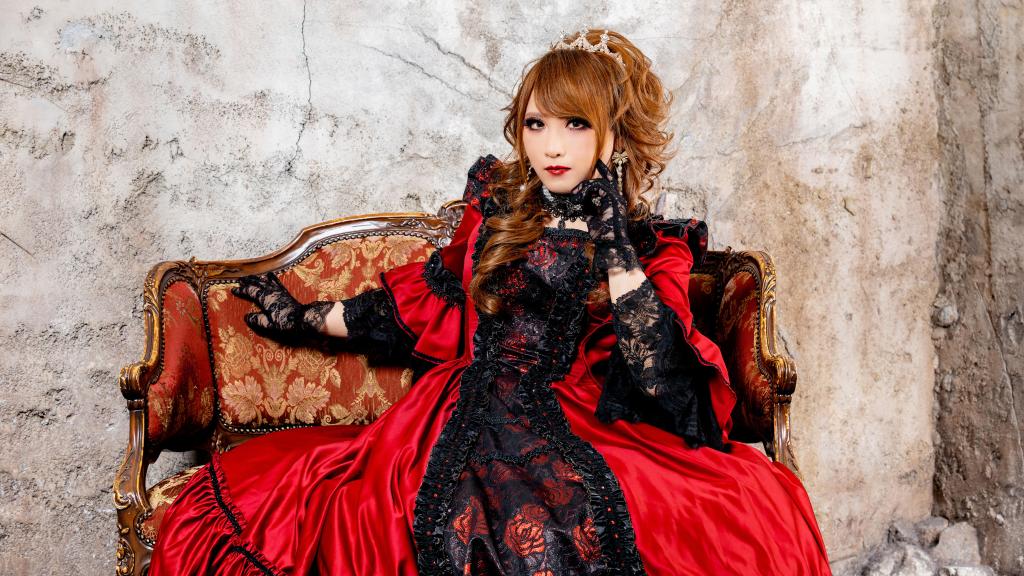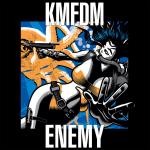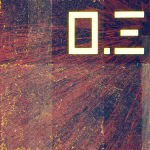HIZAKI is a Japanese guitarist and songwriter, known for his flamboyant visual style. HIZAKI has been active in the visual kei and j-metal scene since the early 2000s. The man first gained recognition as a member of the band Versailles, formed in 2007. As the lead guitarist of the band, HIZAKI showcased his technical prowess and contributed to the band's unique blend of symphonic and melodic metal. Versailles gained a significant following both in Japan and internationally. HIZAKI's guitar solos and compositions became a defining aspect of the band's sound. After Versailles went on hiatus in 2012, HIZAKI formed his own band called HIZAKI grace project. With this project, he continued to explore his musical style, incorporating elements of classical music, neoclassical metal, and visual kei aesthetics. HIZAKI grace project released several albums and performed live shows, further establishing the artist as a prominent figure in the Japanese rock and metal scene. In addition to his solo work, HIZAKI has also formed Jupiter, a symphonic metal band formed in 2013 with the other members of Versailles (except vocalist Kamijo) – who have since left except guitarist TERU. Recently, HIZAKI, together with Versailles, embarked on a tour alongside Moi Dix Mois, D and Matenrou Opera. Following the conclusion of the tour, we had the privilege of meeting with the guitarist for a photoshoot and interview. During our conversation, HIZAKI shared insights into his childhood, his involvement in various bands and his plans for the future.
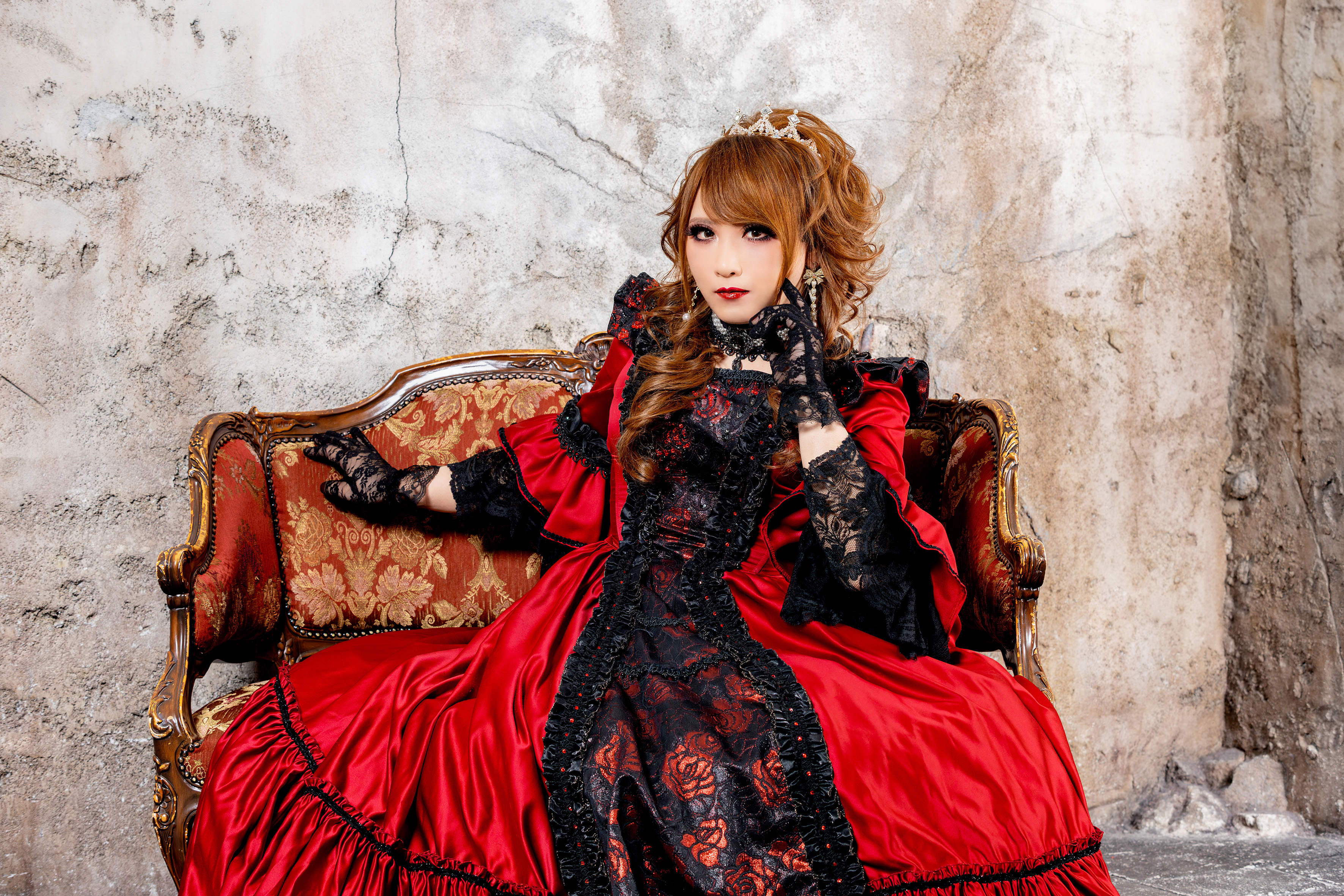
Thank you for joining us. We're excited to hear about Versailles' recent tour with D, Matenrou Opera, and Moi Dix Mois. Can you share your impressions?
HIZAKI: Thank you for having me. Before this, we had never embarked on a tour of this caliber with all four bands together. While Matenrou Opera and Versailles had collaborated in the past, this was the first time we had the opportunity to tour as a quartet with D and Moi Dix Mois. It is a dream come true, to be honest. We have always been very close with the guys of D, Matenrou Opera and Moi Dix Mois, and we had been dreaming about touring together for quite some time. When the opportunity presented itself, we were beyond excited. The camaraderie and support among all the bands were incredible, and it made the tour even more memorable.
That's wonderful to hear.
What’s your best memory of the tour?
HIZAKI: Sharing the stage with Mana was truly a dream come true for me. I have always admired him as an artist and have a great deal of respect for his talent. To have the opportunity to perform alongside him was a privilege and a moment I will cherish forever. It was an incredible experience to witness his artistry up close and to see how he captivates the audience with his unique style. But it wasn't just Mana; sharing the stage with all the musicians from these four bands was equally amazing. Each member brought their own unique energy and skill, and it was a joy to collaborate and create music together. We all shared a deep passion for our craft, and that camaraderie translated into our performances. The energy on stage was electric, and the connection we felt with the audience was truly special. The entire tour experience stands out as my best memory. It is a combination of performing alongside talented musicians, good friendships, and connecting with our fans.
Cool.
Have you learnt anything from the tour?
HIZAKI: Absolutely. Touring with artists who put emphasis on aesthetics has been a transformative experience for me. It has inspired me to further explore and develop my own visual identity. Seeing the dedication and creativity that these artists put into their stage presence and overall visual presentation has motivated me to push myself further in this aspect. This tour has made me reflect on how I can improve and refine my visual style. I want to continue experimenting with different aesthetics, clothes, and stage designs to create a visually stunning and cohesive experience.
Can’t wait to see.
Could you expand on what Mana represents to you?
HIZAKI: Although we only met in person relatively recently, I have long admired and respected him as an artist. Mana's unique style and musical approach have greatly influenced my own artistic direction. His guitar playing and elaborate costumes have always fascinated me. In many ways, Mana represents a symbol of artistic excellence and dedication. His attention to detail, his commitment to his craft, and his unwavering passion for creating art have been a constant source of motivation for me. He is my master. I believe that the artist I have become is intricately connected to Mana's influence.
I see.
You recently performed as a solo act, a performance titled Queen of the Night, with Jill (violin) and Mayto (guitarist). Can you tell us more about it?
HIZAKI: When it comes to Jill, I have known her for a long time. She possesses an incredible technique and her way of playing is simply radiant. Throughout my solo career, she has joined me as a guest on multiple occasions. For "Queen of the Night," she was also there as a guest, but moving forward, I believe she will be a permanent member. I find that her ability to infuse emotion into her violin playing and her use of vibrato resonates with my own guitar style. Personally, she has a significant influence on me. As for Mayto, we have been acquainted for about two years. Right after we met, she immediately appeared on my YouTube channel, and we engaged in a spontaneous guitar improvisation battle. At that moment, when she proposed the idea of improvising together, I thought, "Wow, this girl has such courage, it's fantastic!" I consider her to be a formidable guitarist, and I know she still has more tricks up her sleeve (laughs). We will perform again together next year. I wanted to do solo concerts again but after reflection I thought it would be better to be back on stage the three of us, with Jill and Mayto.
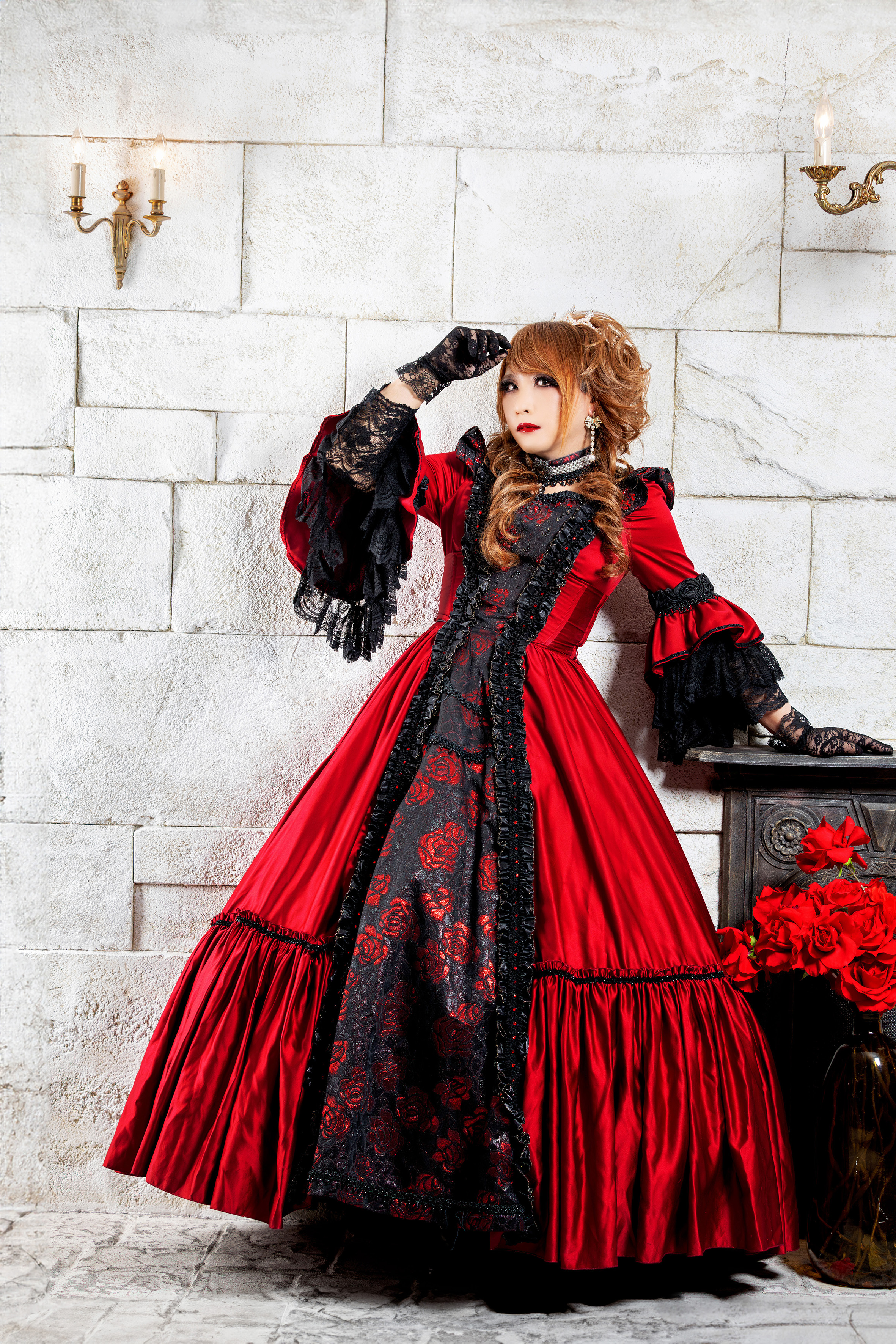
Let’s rewind until your younger years.
When did you start playing the guitar?
HIZAKI: I started playing the guitar in the 6th grade when I was around 11 years old. Initially, I was strongly attracted to the sound of the violin, but I didn't come from a musical background. So, my exposure to music was mainly through television, and it was from there, television, that I developed a particular fascination with the violin. However, when I expressed my interest to my parents, they immediately said "no." At that time, my older brother was part of the music scene in Japan, where it was popular for students to form bands. So, I continued to explore music through him, occasionally sneaking in moments to experiment with different instruments while spending time together.
Your parents were hesitant about you playing the violin but were more open to the idea of you playing the guitar.
HIZAKI: Absolutely not (laughs).
So, why did you decide to pursue the guitar instead of the violin then?
HIZAKI: During that time, there was a wave of new bands emerging, such as X-JAPAN, who blended classical elements with aggressive sounds. I was captivated by this fusion of styles and found it incredibly inspiring. It was a revelation for me, as I realized that I could create something unique and powerful by combining classical influences with a more modern and edgy approach. So, I made the decision to pursue the guitar as my instrument of choice. I saw it as a means to bridge the gap between classical music and the raw energy of rock and metal. The electric guitar, with its versatility and ability to produce a wide range of sounds, seemed like the perfect tool for me to express my musical ideas and emotions.
That’s interesting.
Would you like to start learning how to play the violin now?
HIZAKI: I wouldn’t (smiles). I do admire the people who can play the violin and the piano though.
What was your first guitar and why do you primarily use ESP guitars now?
HIZAKI: My first guitar was actually a Fernandes, a Japanese brand. It was a popular choice among beginners due to its affordability, and many musicians at that time were using Fernandes guitars. However, as I delved deeper into the visual kei scene, I found that ESP guitars were widely used and highly regarded. I noticed that many of my favorite foreign artists, such as George Lynch, were also using ESP guitars, which further piqued my interest in the brand.
How did you come to acquire your first guitar at the age of 11 when your parents were against it?
HIZAKI: Well, it's a bit of an interesting story. The guitar I initially started playing was actually my brother's. However, he eventually decided to switch to bass, leaving his guitar unused. I saw this as an opportunity to explore my own musical path, so I asked if I could take over his guitar. I remember negotiating with him and eventually paying him for it. I used the otoshidama money (ed. monetary gift given to children by adult relatives) I received as New Year's gifts, which is a common tradition in Japan. It was a pivotal moment for me. Having my own guitar gave me a sense of ownership and allowed me to fully immerse myself in practicing and honing my skills. I was filled with excitement and determination to learn and create music. It was a significant step towards pursuing my passion and solidifying my commitment to the instrument.
That's quite resourceful of you to use your New Year's gift money to invest in your future. How did you eventually decide to pursue a professional career in music despite the initial resistance from your parents?
HIZAKI: Despite my parents' initial disapproval, I remained determined to pursue my passion for music. The more I practiced and honed my skills on the guitar, the stronger my conviction became. I had a burning desire to prove myself. Actually, at that time, I was living in Kyoto, and instead of aiming to become a professional, my mindset was more focused on becoming the strongest musician in Kyoto, or rather, creating the best music band in Kyoto, then the best band in Osaka. And if I became the best in Osaka, then moving to Tokyo would be the logical next step. I never really thought in terms of it being a "career." It was simply about becoming the best, first in Kyoto and then in Osaka. I believed that becoming the best in my local music scene was just the first step towards achieving my ultimate goal. I saw it as a natural progression to eventually make my mark in Tokyo, the epicenter of the music industry in Japan. After finishing high school, I told my parents that I wanted to attend a music school, but they said no. I was raised in a household where the answer was always "no" whenever we expressed a desire to do something. I poured countless hours into practicing, pushing myself to the limits. I used to practice the guitar for 10 to 12 hours a day. It would annoy my parents. Looking back, I don't think it was a good thing for them to shut us down whenever we wanted to pursue something. It’s still a painful memory of mine. But I held on, and I was able to become famous, sell more and more, and turn the situation around. Over time, my dedication and hard work started to pay off. I began gaining recognition, building a fanbase, and achieving success in the music industry. It was a turning point that allowed me to prove to my parents and myself that pursuing music professionally was not only a viable path but also one that could lead to fulfillment and success.
I wish your parents had been more supportive of your passion. I hope they are proud of you now. Overall, what kind of child and teenager were you?
HIZAKI: Hum… How was I (laughs)? As a child, I had a diverse range of interests, and one of them was playing baseball. However, my true passion and dedication were reserved for the guitar. From a young age, I felt a deep connection to the instrument. During my middle school years, my commitment to music intensified. I became consumed by my desire to excel on the guitar, often sacrificing sleep to devote more time to practice. While my peers were engaged in typical teenage activities, I was fully immersed in honing my musical abilities. Transitioning into high school, I held high hopes of finding like-minded musicians who shared my passion and talent. However, I was met with disappointment as there were no fellow musicians around in my immediate surroundings. Growing up in the countryside of Kyoto presented its challenges, as the music scene was limited, and finding musical companions proved to be a difficult task. Despite the lack of musical peers, I remained undeterred. It was during my post-high school years that I finally began to connect with talented individuals who shared my musical aspirations. This marked a turning point in my journey, as I was able to surround myself with like-minded musicians and fully immerse myself in the world of music.
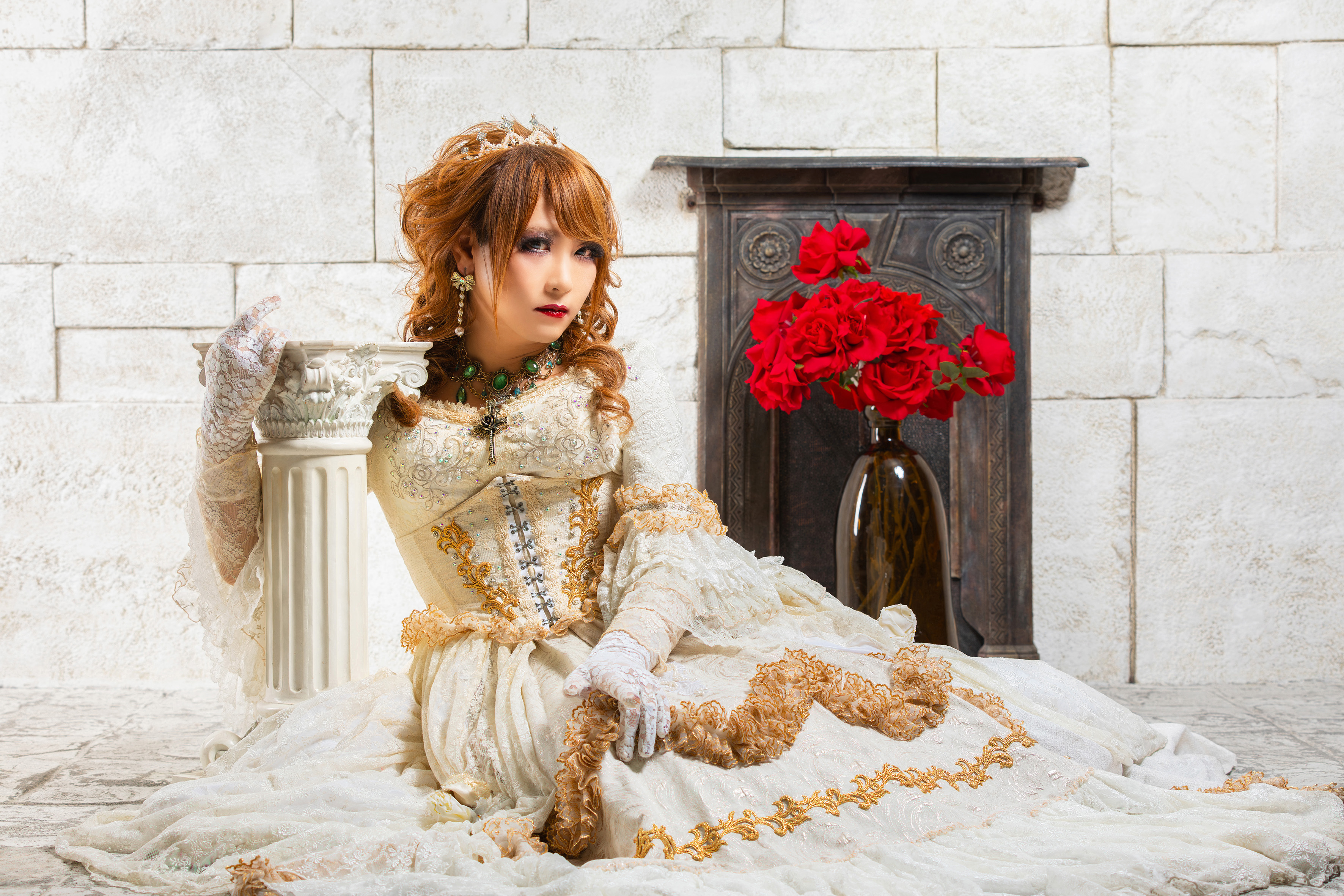
Can you tell us more about the formation of Versailles and Jupiter?
HIZAKI: When I first arrived in Tokyo, my initial focus was on pursuing my solo career. However, I frequently collaborated with Jasmine You (bassist), whom I had met during my time in Kyoto. Despite him being from Nagoya, we found ourselves playing together whenever possible. The idea of forming a band together had always been on our minds, but due to various circumstances, the timing never seemed to align until I made the move to Tokyo. As for Teru, he was also from Kyoto. I recognized his exceptional talent and believed he would be a perfect fit for our envisioned band. It was only a matter of time before our paths crossed, and we began discussing the possibility of joining forces. Kamijo, on the other hand, had been a long-time acquaintance of mine. He was the vocalist of the band Lareine and, at one point, was searching for a second guitarist. He approached me with the offer, but unfortunately, I was already committed to another band at the time and had to decline. Despite this missed opportunity, the desire to collaborate with Kamijo remained, and fate eventually brought us together years later. Yuki's involvement in the band came about in a rather interesting manner. We had already formed Versailles and even secured concert dates when we realized that we were still missing a drummer. In a rush to find a suitable candidate, the owner of the renowned live-house Rockmaykan in Meguro introduced us to Yuki, who became the final piece of the puzzle. Regarding the image of Versailles, Kamijo and I had numerous discussions early on. Our goal was to create a band that would embody the essence of "the rose" on a global scale. The rose motif was relatively uncommon among bands worldwide, and we saw it as an opportunity to delve deeper into its symbolism and meaning. Jasmine You resonated with this concept, and the rest of the members naturally embraced it, solidifying the image and identity of Versailles. The formation of both Versailles and Jupiter was a culmination of shared visions, fortuitous encounters, and a collective passion for creating music that resonated with our artistic sensibilities. It was a journey that brought together talented individuals from different backgrounds, united by a common goal to make a significant impact in the world of music.
Then you formed Jupiter?
HIZAKI: That’s right. After the initial disbandment of Versailles in 2012, I had plans to embark on a new challenge in America. It was a time of reflection for me as an artist. However, during this period, the remaining members of Versailles approached me and expressed their strong desire to continue making music together. I couldn't ignore the bond we had formed throughout our years of collaboration. Despite my initial plans, I found myself drawn back to the idea of playing with them once again. The prospect of continuing our musical journey together was too enticing to resist. Before I knew it, we were back in the rehearsal studio, rekindling our creative energy and reigniting the flame that had once fueled Versailles. It was a natural progression for us to continue making music under a new name, and thus, Jupiter was born.
What do Versailles, Jupiter, and your solo work bring you?
HIZAKI: Each musical work, whether it be Versailles, Jupiter, or my solo work, brings me unique experiences and fulfillment on a personal level. When I perform solo, without a vocalist, and it's just me and my guitar in an instrumental concert, I feel a profound sense of personal growth as a guitarist. It's a journey of self-discovery and continuous improvement. Unlike when I'm in a band, where there may be pressure during guitar solos, performing solo allows me to fully immerse myself in my instrument for the entire duration of the performance. It's a dedicated time where I can focus solely on my own sound and explore new possibilities. This solo work gives me a tangible sense of progress and evolution within my musical domain. Jupiter, on the other hand, provides me with a different kind of satisfaction. While I still have the opportunity to play songs that I love, there is a natural sense of authenticity and self-expression that comes with being a part of this band. I feel that I can showcase my true self more openly. On stage, I enter a state where I am completely in the moment, letting the music guide me. There is a sense of freedom and spontaneity that allows me to fully embrace the joy of performing. It's a liberating experience where I can let go of any preconceived notions and simply enjoy the music as it unfolds. Being a part of Jupiter feels natural and effortless, and it brings me a deep sense of contentment. In terms of Versailles, it holds a special place in my heart as it was the band that initially brought us together. Versailles represents a collective vision and a shared journey. Being a part of Versailles has taught me the importance of collaboration, teamwork, and the power of unity in creating something greater than ourselves.
Did your relationship change after they left the project Jupiter and reunited with you for the project Versailles?
HIZAKI: No, our relationship didn't change when we reunited with Versailles. Although it was emotionally difficult when they departed from Jupiter, I always knew that our bond would endure and that we would continue to support each other throughout our lives. So, it was reassuring to have the freedom to pursue our individual paths while still maintaining a strong connection as musicians and friends. As for why TERU was the only one who stayed, I can't say for certain. Perhaps it was because both TERU and I share a deep love for the "metal" side of music, which was a prominent aspect of Jupiter's sound. It has always been a dream of mine to participate in metal festivals and fully immerse myself in that genre. TERU also comes from a background rooted in pure metal, so I believe we share a common understanding and passion for this style of music.
Why did TERU decide to stay?
HIZAKI: Well, I have no idea (laughs). Maybe because both him and I love metal, which is very prominent in Jupiter. It's part of my dreams to participate in metal festivals. And TERU has a metal background. think we share that feeling and love for heavy music.
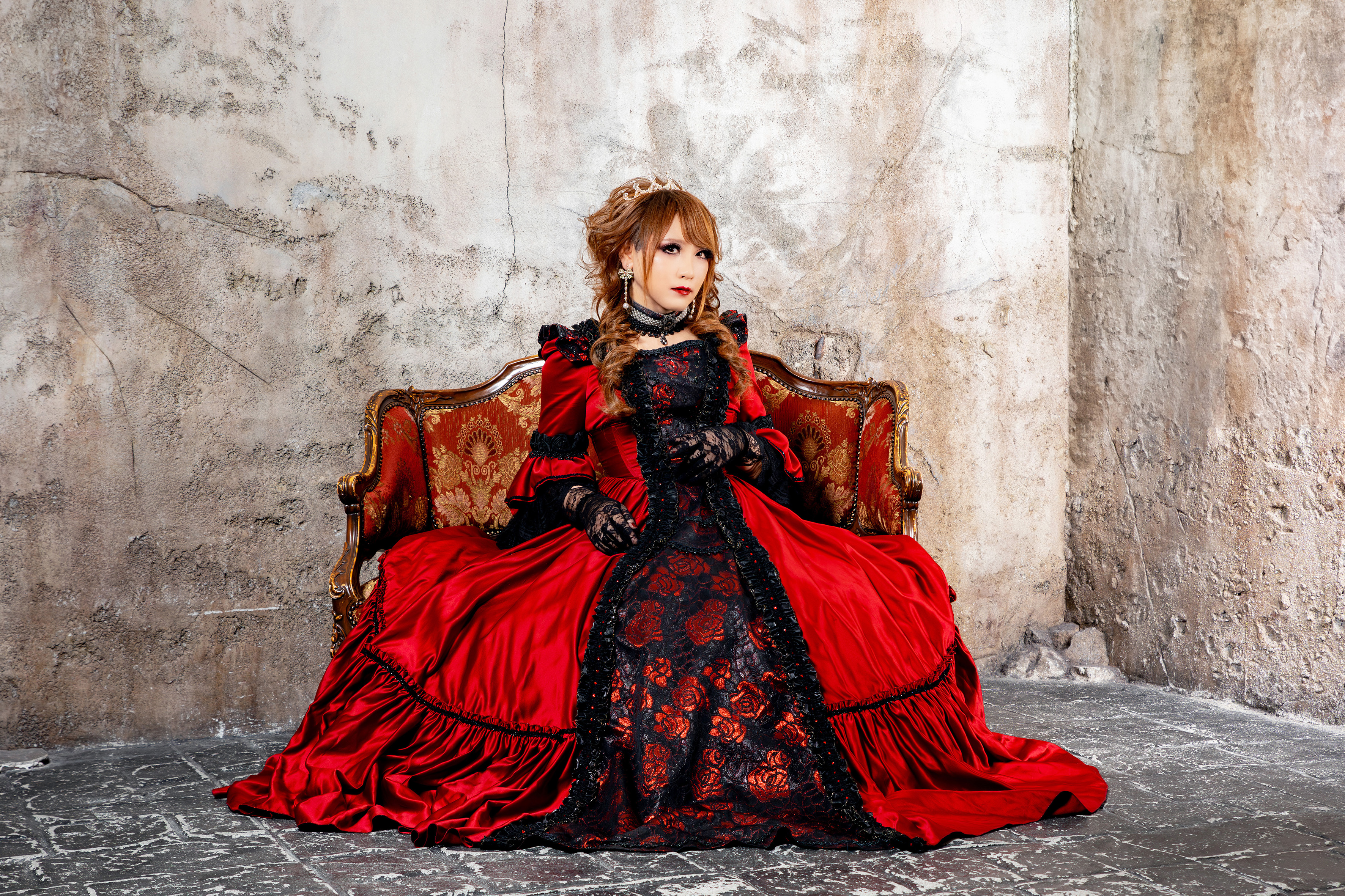
You said that your initial plan was to go abroad. What did you hope to find in America that you felt was lacking in Japan when you considered going there?
HIZAKI: Actually, it wasn't specifically about America, but rather a personal challenge I wanted to undertake. It could have been any country, whether it be France, Germany, or elsewhere. The intention was not to permanently relocate, as I find Japan to be a more comfortable and enjoyable place to live. The desire to explore other countries and cultures stemmed from a thirst for new experiences and artistic growth. I wanted to broaden my horizons, connect with different audiences, and expand my musical influences. It was about pushing myself outside of my comfort zone and embracing the unknown, which I believe is essential for personal and creative development. But I feel like Japan is a better country choice to live in.
I can only agree with you.
Do you have any other projects in mind for the future?
HIZAKI: I do! I went to collaborate with a singer. A few years ago, I had been working on a project with a talented foreign vocalist. We had exciting plans and ideas for our collaboration, but unfortunately, due to the unforeseen circumstances of the COVID-19 pandemic, the project had to be canceled. However, I have not given up on the idea of collaborating with this artist. The vision and chemistry we shared were truly special, and I believe that our collaboration has the potential to create something unique and captivating. I am eagerly waiting for the right opportunity to bring this project to life. While I cannot disclose the identity of the artist at this moment, I can assure you that they are someone I deeply respect. I am eagerly looking forward to sharing more details when the time is right.
How do you describe your playing style?
Do you believe it changes depending on who you collaborate with?
HIZAKI: Yes, absolutely. It does change. The dynamics of my playing style do tend to shift depending on the collaboration, particularly with the vocalist involved. It's a process of understanding and complementing their unique voice and the emotions they wish to convey through their singing. For instance, when working with Kamijo, there are moments where he expresses his desire to bring forth a different facet of charm within a particular song. This prompts me to adapt my guitar playing to enhance and support his vision. It becomes a collaborative effort to create a musical atmosphere that aligns with his vocal strengths and artistic intentions. In essence, my playing style becomes intertwined with the vocalist's preferences and vocal qualities. I strive to find the perfect balance between their voice and my guitar. However, regardless of the collaboration, there are certain elements that remain consistent in my guitar playing. I have a natural inclination towards classical influences and melancholic melodies. These elements serve as a foundation in my music, allowing me to connect with those who may be experiencing sadness or hardship. My ultimate goal is to provide solace and healing through my melodies, offering a sense of comfort and understanding to those who listen.
What is the biggest regret and accomplishments you have experienced in your career so far?
HIZAKI: I wouldn't say I have any significant regrets, but there is one thing that comes to mind. I spent a long time in Osaka before finally making the move to Tokyo, and upon arriving, I couldn't help but think, "Ah, I should have come here sooner." I was around 26-27 years old at the time, and I realized that Tokyo offered more opportunities and a vibrant music scene that could have accelerated my growth as an artist. On the other hand, one of my greatest accomplishments is being able to embark on a world tour. It's an incredible feeling to travel to different countries and perform for audiences who appreciate our music. Despite the challenges of constant travel, the demanding schedule, and the added pressure of maintaining my elaborate makeup, the joy I see on the faces of fans from around the world makes it all worthwhile. It's a reminder that I made the right decision to pursue a career in music. During these world tours, there is always a lingering thought of when exhaustion might take its toll. However, what makes these experiences so fulfilling is the overwhelming sense of being truly alive. The energy of the crowd, the connection forged through music, and the shared moments of pure emotion create an indescribable high that fuels my passion and reminds me why I chose this path.
Any new goal?
HIZAKI: My ultimate goal in life… it may sound simplistic, but it is deeply meaningful to me. I aspire to have my music touch the hearts of an ever-growing number of people. The ability to bring solace, inspiration, or even just a moment of joy to someone through my music is a powerful motivator. It surpasses the desire for commercial success or playing in massive concert venues. It's about making a genuine impact on individuals and leaving a positive imprint on their lives through the power of music.
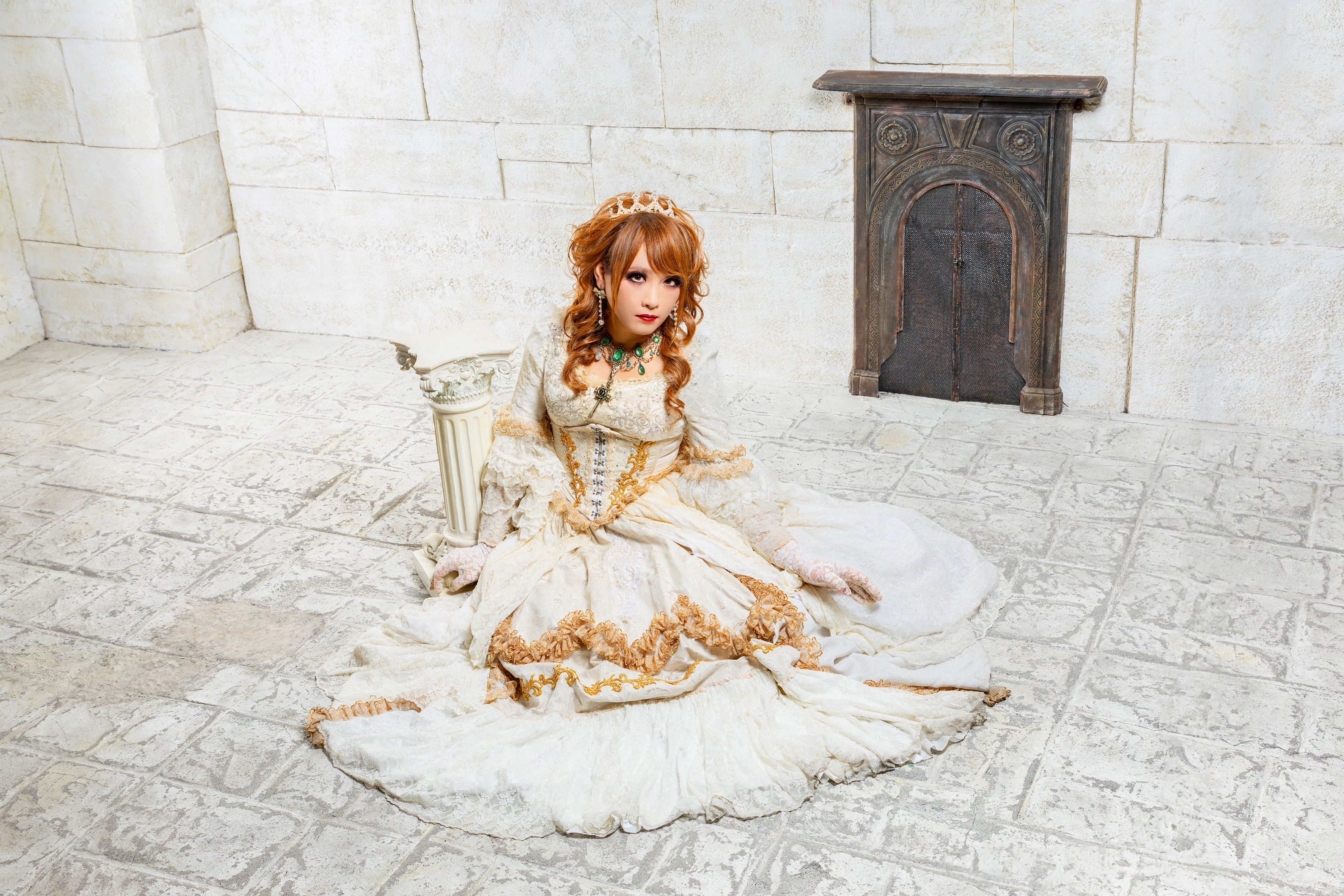
Is there a particular song in your repertoire that holds a special meaning to you? And on the other hand, which song has been the most challenging for you to write?
HIZAKI: Absolutely, there is a song from Versailles called "Faith & Decision" that holds immense significance for me. It spans approximately 17 minutes in length and was composed during a time of great turmoil - the major earthquake that struck Japan in 2011. In the aftermath of such a catastrophic event, I found myself questioning whether I could continue pursuing a career in music. The entire nation was gripped by a sense of despair and uncertainty. It was during this period that "Faith & Decision" took shape, carrying a dual message within its composition. Firstly, it expresses gratitude for the strength and resilience to endure such hardships, and secondly, it serves as a message of perseverance, urging listeners to hold on and remain steadfast in the face of adversity. As for the most challenging song to write, I would have to say it is "Ascendant Master." This particular composition marked our debut with a major label, and with that came a certain level of pressure to create a hit that would resonate with a wider audience and achieve chart success. The label's enthusiasm and expectations were palpable, and while the task of crafting a joyful song may not inherently seem difficult, it presented a unique challenge. We had to strike a delicate balance between creating a track that would appeal to a broader demographic while staying true to our core identity, style, and the essence of our metal roots. It required us to navigate the fine line between accessibility and authenticity. In that sense, "Ascendant Master" posed a considerable challenge during its creation. However, through perseverance, we were able to overcome these obstacles and deliver a composition that we are proud of.
There seems to be a significant contrast between your super feminine, baroque, appearance and aggressive nature of your music.
HIZAKI: Indeed, there are multiple reasons why I embrace this contrast. Firstly, I find it intriguing and enjoyable to explore the juxtaposition between my soft appearance and the intensity of my music. It adds depth and complexity to my artistic expression. And, I have often contemplated whether people would pay as much attention to me if I didn't have this distinctive visual presentation. The elaborate makeup and extravagant stage presence serve as a way to capture people's attention and make a lasting impression. It's a deliberate choice to stand out. I think, the metal genre, particularly in the global scene, is not typically associated with the kind of visual presentation that I embrace. By pushing the boundaries and embracing a unique aesthetic, I aim to bring something fresh and unexpected to the genre. It allows me to carve out my own niche and create a distinct identity as an artist. But, it's important to note that if this style of visual presentation were to become commonplace, I would feel compelled to explore new avenues and reinvent myself. The essence of my artistic expression lies in pushing boundaries and challenging conventions, so I would adapt and evolve to maintain that sense of uniqueness.
As you said, your stage persona is elaborated, and you present yourself as a feminine character. I'm curious to know more about the thought process behind this aesthetic choice.
HIZAKI: Sure. The decision to adopt a highly feminine stage persona dates back to my high school days. During that time, it was almost expected for Visual Kei bands to have at least one member who embraced a more feminized appearance. It was a defining characteristic of the genre. When I formed my first band after high school, the question arose as to who would take on this role, and I volunteered without hesitation. From that point on, I made a conscious decision to continue with this aesthetic, as it felt like a natural extension of my artistic expression. As the years went by, I realized that this choice allowed me to tap into a unique form of self-expression and creativity. It became an integral part of my identity as a musician. Even as I matured and grew older, I never considered abandoning this persona. In fact, I believe it would be a disservice to myself and my artistry to do so. There are artists in the industry, both within Visual Kei and other artistic realms like kabuki, who continue to embrace their chosen aesthetic despite the passage of time. Their unwavering commitment to their artistic vision has inspired me to stay true to myself and continue presenting myself on stage in this manner.
I see.
I’d love to hear about the transition between your stage character and your everyday self. How do you navigate this shift?
HIZAKI: Transitioning between my stage persona and my everyday self can be a complex process, particularly when it comes to Versailles. As we prepare for performances, I immerse myself in the character several months in advance. It requires a deep understanding of the role and a willingness to fully embody the essence of the character. Rehearsals play a crucial role in this process, allowing me to fine-tune my performance and fully embrace the persona I've created. However, when it comes to my work with Jupiter and my solo career, the line between my stage persona and my true self becomes more blurred. In these projects, I feel a sense of authenticity and a natural alignment with my artistic expression. It's as if I'm embracing my true self, rather than assuming a character. This fluidity allows me to seamlessly transition between my stage persona and my everyday life, as both aspects of my identity feel interconnected and genuine.
When you undergo physical transformations, such as applying makeup, do you feel like a different person?
HIZAKI: Surprisingly, I don't feel like a different person when I undergo physical transformations for performances. Instead, I approach these preparations with a deep sense of mental and emotional readiness. In the days leading up to each performance, I mentally prepare myself to fully embody the character and deliver an impactful live experience. Having professional makeup artists take care of the physical transformation allows me to focus solely on the performance itself, ensuring that I can give my all on stage. I've come to realize that the physical transformation is just one aspect of the overall artistic experience. It's the culmination of months of preparation, rehearsals, and emotional investment. Rather than feeling like a different person, I see it as an extension of my artistic expression, a way to enhance the visual and emotional impact of the performance.
I see.
Have there been moments when the boundary between your stage persona and your true self becomes blurred?
HIZAKI: Indeed, there have been instances where the boundary between my stage persona and my true self blurs, particularly in everyday situations. For example, when I visit a store or engage in mundane activities, there are moments when I catch myself unintentionally slipping into my stage character. It's almost like a reflex, where I find myself signing autographs instead of simply providing a regular signature during administrative procedures (everyone bursts out laughing).
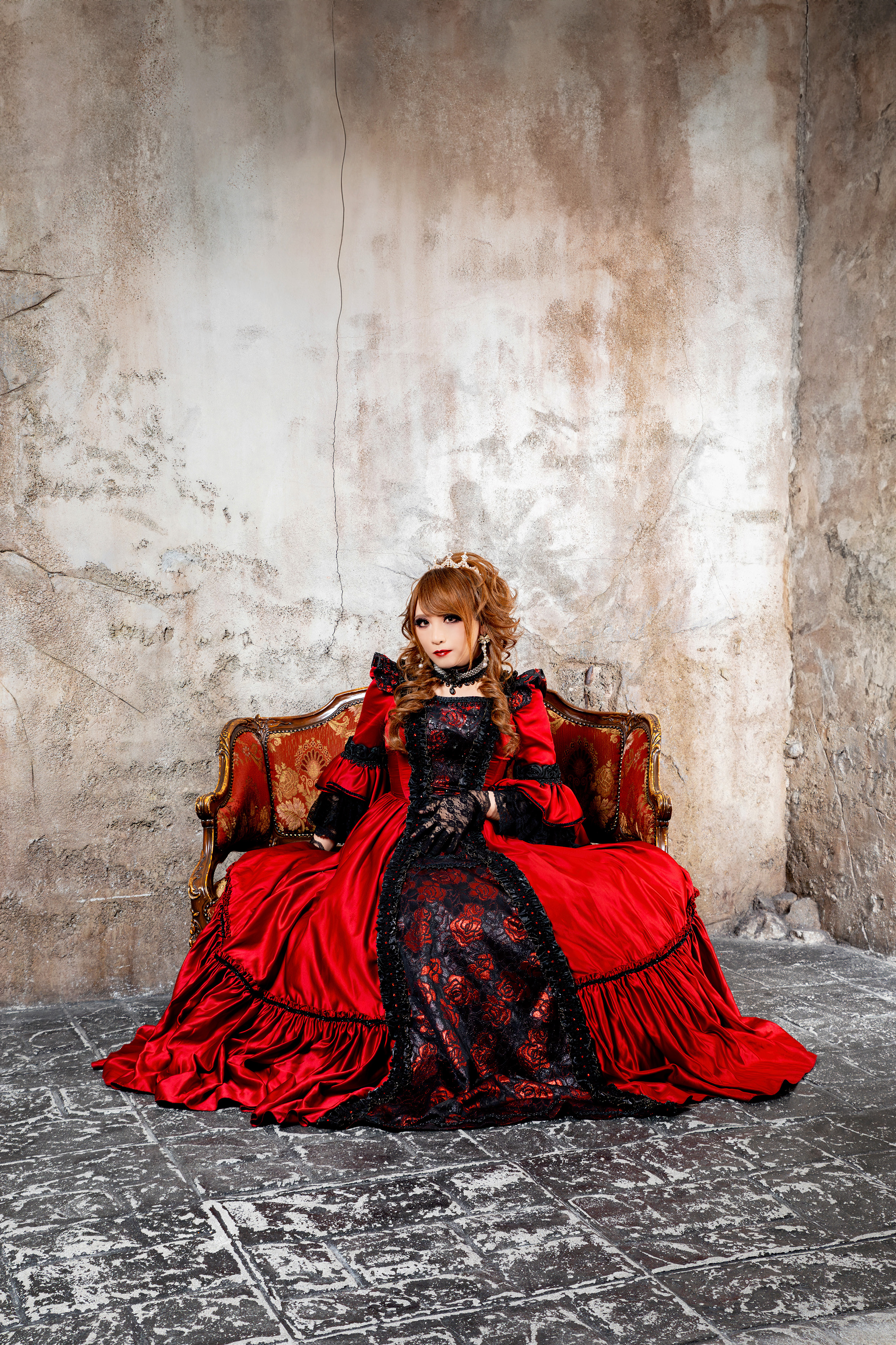
Prior to a show, how you prepare yourself as a guitarist?
HIZAKI: Sure. Before embarking on a tour or a series of concerts, I prioritize maintaining my physical well-being. While I wouldn't classify it as intensive training, I engage in activities such as running and ensuring I properly stretch my muscles. These practices help me stay in optimal shape and give my best performance on stage. For instance, during the Zepp tour we did with the three other bands, I dedicated two months to preparation, incorporating daily runs into my routine.
How do you usually feel after a concert?
HIZAKI: After a concert, I feel a mix of introspection and a tinge of regret. If it's the final show of a significant tour, my mind tends to be blank, and I don't dwell on specific thoughts. However, when it comes to concerts in the middle of a tour, after the initial rush of happiness from delivering a successful live performance, I often find myself reflecting on ways to improve. I think about what I could have done better and make mental notes for future shows, constantly striving to enhance my skills and stage presence
Speaking of sports, I noticed that on your YouTube channel, there are videos featuring YURA-sama. In one of them, you both try your hand at aerobics.
HIZAKI: Ah, yes! That particular video was intentionally created to showcase a humorous side of me. We wanted to capture a moment where it's evident that I struggle to keep up with YURA-sama during the aerobics session (laughs). We thought it would be more entertaining to highlight my inability to master the moves. I've always been someone who doesn't shy away from showing my vulnerabilities, so I thought, "Why not embrace and share my shortcomings?" I didn't have any reservations about showing my struggles in the aerobics video. I've always believed in being authentic and transparent. By sharing moments where I'm not at my best, it allows people to relate to me on a more personal level. It humanizes me as an artist and shows that I'm just like anyone else, with my own strengths and weaknesses. In hindsight, I did have a moment of reflection where I wondered if it was perhaps a bit too much (laughs). However, the main objective was to bring joy and laughter to those watching. If people can sit in front of their screens, watch the video, and have a good laugh, then I consider it a successful outcome.
It’s cool to hear about your willingness to embrace your vulnerabilities. You've had the opportunity to tour overseas. Can you recall any memorable episodes from those tours?
HIZAKI: Ah, yes! One thing that often stands out during our overseas tours are the technical difficulties we encounter. It's not uncommon for equipment to not arrive as expected. I remember a particular incident where I had ordered a wireless transmitter for my guitar, but upon arrival, it turned out to be a wireless microphone for backing vocals instead. It was quite a comical mix-up. Another time, in Taiwan, we faced a challenge with a guitar amplifier we had ordered. It consistently produced a strange noise. After some troubleshooting, we discovered that adjusting the voltage to match Japanese standards resolved the issue. It was a reminder that Japanese equipment often requires specific settings to function optimally (laughs). But you know, while these technical hiccups can be frustrating, over time, the concert organizers and staff have become more familiar with our requirements, resulting in smoother experiences. In the early days, especially in Europe, we encountered some cultural differences. For instance, we were asked why we take a bath every day, as it seemed unusual to some (laughs). Yes, its uncommon in Europe to take baths everyday.
Have you noticed any differences between Japanese fans and fans from other countries?
HIZAKI: Yes, there are indeed some differences, although it varies from country to country. One noticeable aspect is the level of enthusiasm and vocal participation from overseas fans. They tend to scream and cheer louder during our performances. Perhaps it's because the metal culture is more prevalent in those regions, and the fans are accustomed to expressing their excitement in a more energetic manner. One experience that left a lasting impression on me, particularly during our visits to France, was the incredible diversity among the audience. We would see people from all walks of life, spanning various age groups, from very young to elderly. Witnessing this diverse crowd while we were on stage, it felt like a dream come true as artists. It's a testament to the universal appeal of music and how it can bring people together, regardless of their backgrounds or age. It's truly a remarkable and humbling experience
Are there any plans for you to tour abroad this year?
HIZAKI: Yes, I have upcoming plans to perform in Spain on November 18th and 19th, 2023, alongside Kouki from the band D=OUT. As for what lies beyond that, I am uncertain at the moment. Organizing tours has become more complex, especially in light of the challenges posed by the COVID-19 pandemic. As a result, we may opt for smaller-scale performances in Europe, for example, to accommodate the current circumstances.
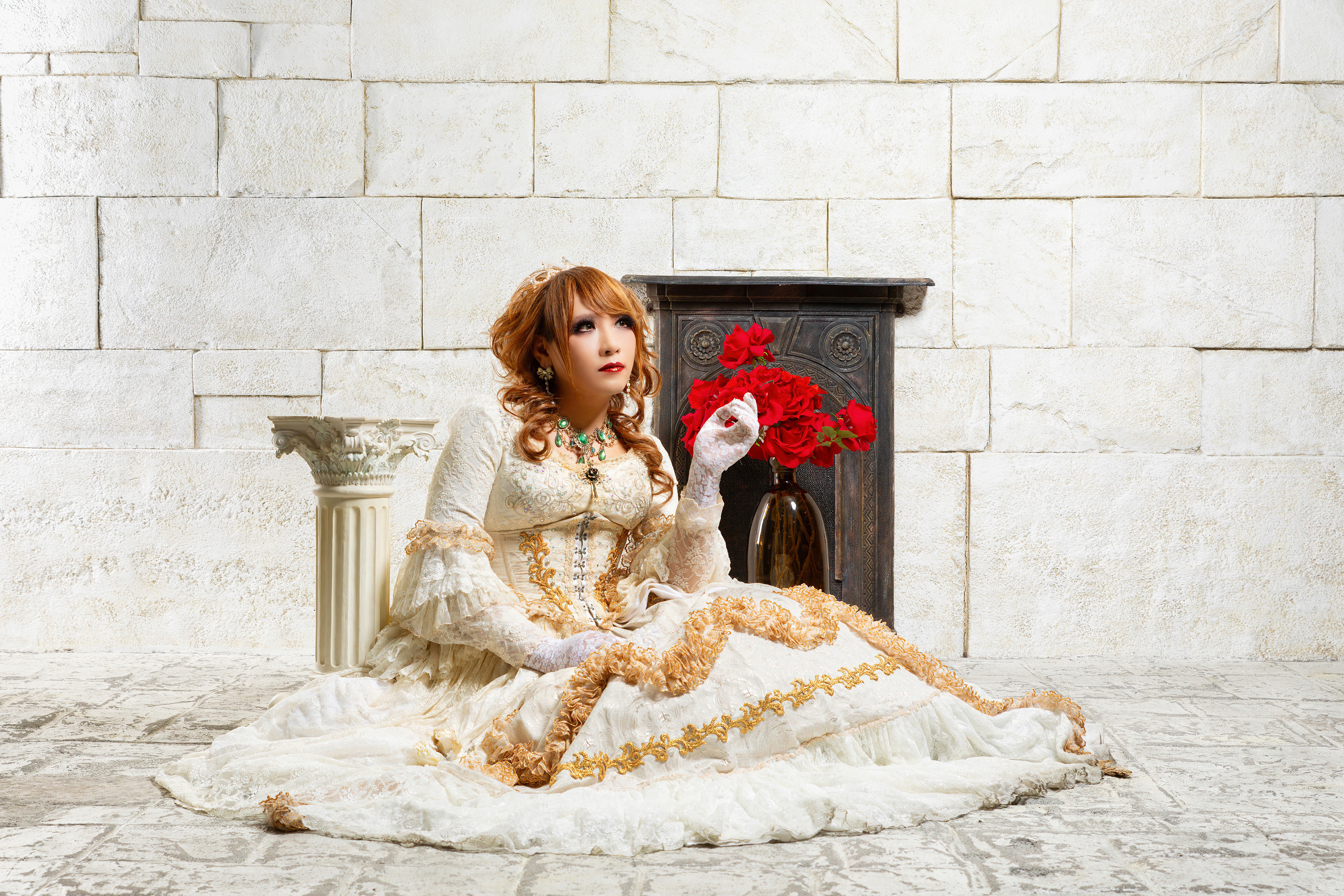
Versailles will be holding their final concert on December 14th, marking the end of their career. How do you feel about this?
HIZAKI: It definitely brings sadness. However, as he himself mentioned, life is not solely dedicated to the band. There is also a "next life" beyond this chapter. Instead of dwelling solely on the sadness, I choose to view it as a precious lifelong treasure. This experience of being together as a band has shaped us and will forever hold a special place in our hearts. And to have our Last Live as the grand finale in December, it adds an extra layer of significance to this journey. Being a part of Versailles has been an incredible journey filled with growth, challenges, and unforgettable moments. It's not just about the music, but also the bond we've formed as a band. We've shared countless memories, both on and off stage, and have grown both as individuals and as a collective unit. This experience has taught me the value of perseverance, teamwork, and the power of music to connect people. While it's the end of an era for Versailles, it's also the beginning of new possibilities. Each member will embark on their own path, exploring different avenues in life and music. My hope is that we can all continue to pursue our passions and find fulfillment in our respective journeys. And who knows, maybe our paths will cross again in the future, creating new music and memories together.
It’s a beautiful thing to say.
After Yuki announced his hiatus, Versailles mentioned in concert held in February, the possibility of a future relaunch. While there may not be a fixed timeline, can you provide any confirmation?
HIZAKI: I cannot provide a definitive answer as many things have changed since the announcement in February. Yuki's health issues, such as dystonia, have been a significant factor, as well as his desire to support his family. Therefore, it seems unlikely that a relaunch will occur. However, it is not impossible that in the future, Yuki may regain the desire to play and we could reunite on stage once again. For now, he prefers not to dwell on the matter, having made the decision to retire. Nevertheless, it remains a possibility that he may resurface in some capacity down the line.
Let’s wrap up the interview on a lighter note. If you could wake up tomorrow with a new talent or ability, what would you choose?
HIZAKI: Hmm (laughs), that's a tough question. But, if I had to choose, I would love to have a greater level of erudition. During my school days, I didn't focus much on studying. My main focus was always on music. Looking back, I sometimes wonder how my life would have been different if I had put more effort into my studies. If I could go back and meet my younger self, I would definitely advise him to work harder in school.
What do you think gaining more knowledge would bring to your life?
HIZAKI: One significant aspect would be improving my English language skills. While I can communicate in English, I often feel that I could express myself more fluently and confidently. Especially when I'm on tour abroad, there are moments when communication doesn't flow as smoothly as I would like. Although music and sound are universal languages that connect people, having a higher level of English proficiency would undoubtedly enhance my interactions and allow for deeper connections with fans and fellow musicians. So, looking back, I wish I had dedicated more time to improving my English skills.
Is it something you would consider pursuing now?
HIZAKI: Honestly, I think I would probably give up after just three days (laughs). Learning a language, much like mastering an instrument like the guitar, requires consistent practice and dedication. It's a daily commitment that requires a certain level of passion and enjoyment. If I were to take on the challenge of learning English now, I would need to find a way to make it enjoyable and engaging. Otherwise, it would be difficult to sustain the motivation to continue. But who knows, maybe I'll surprise myself and give it a try in the future (laughs).
Do you have a message for your foreign fans?
HIZAKI: I do. First of all, regarding Versailles, Yuki's retirement concert in December will mark the end of an era. However, there is always a possibility that we will come back even stronger one day and perhaps embark on a world tour. So, no matter what, I hope you will be excited to discover what the future holds for us. As for Jupiter, we are currently taking a short break, but we will be back soon, still as powerful as ever, with plans for tours. So, stay tuned. In terms of my solo career, I am gradually resuming performances, and since it involves a smaller group, I believe we will be able to tour internationally again. I would like to reach out to foreign organizers: please invite us! By the way, your voices as fans are also very important. The more demand there is, the more feasible it becomes to make our dreams come true. So, spread the word and talk about it with others! Thank you for your support and see you soon.
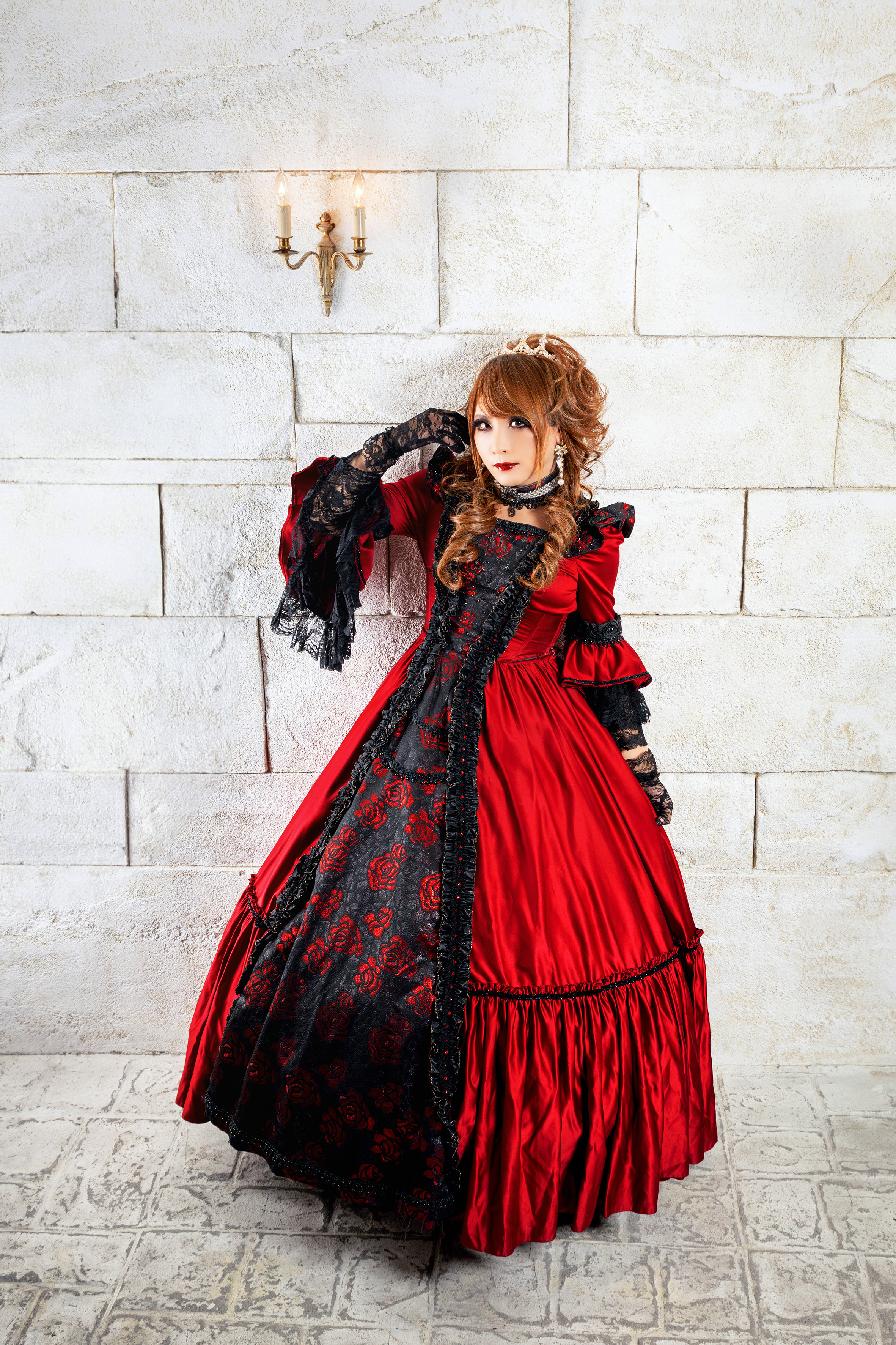
Article | Mandah FRÉNOT
Photography | Yoann CLOCHON
Hair & Makeup Artist | M’s Hair&Make-up (RIE FUKAZAWA)

